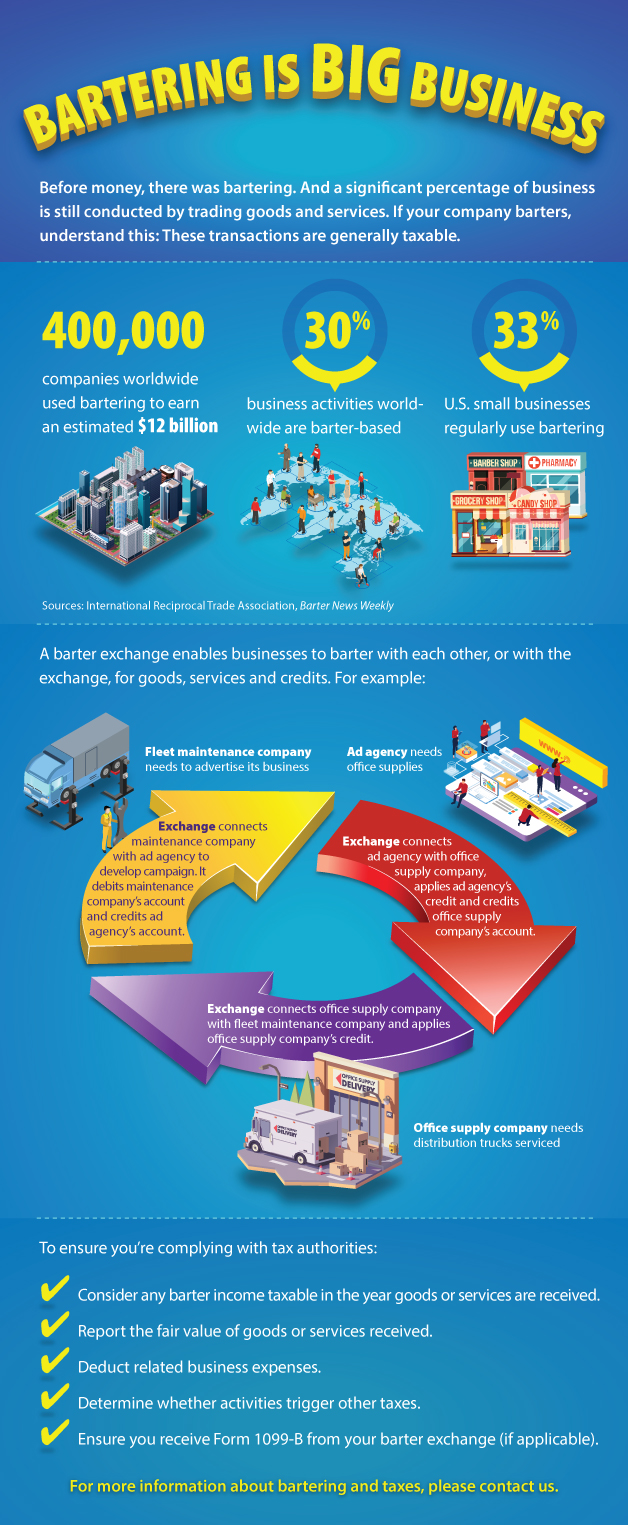Before money, there was bartering. And a significant percentage of business is still conducted by trading goods and services. If your company barters, understand this: These transactions are generally taxable.
- 400,000 companies worldwide used baartering to earn an estimated $12 billion.
- 30% business activities world-wide are barter-based.
- 33% U.S. small business regularly use bartering.
A barter exchange enables business to barter with each other, or with the exchange, for goods, services and credit, For example:
Fleet maintenance company needs to advertise
1. Exchange connects maintenance company with ad agency to develop campaign. It debits maintenance company’s account and credits ad agency’s account.
2. Exchange connects ad agency with office supply company, applies ad agency’s credit and credits office supply company’s account.
3. Exchange connects office supply company with fleet maintenance company and applies office supply company’s credit.
To ensure you’re complying with tax authorities:
- Consider any barter income taxable in the year goods or services received.
- Report the fair value of goods or services received.
- Deduct related business expenses.
- Determine whether activities trigger other taxes.
- Ensure you receive Form 1099-B from your barter exchange (if applicable).
For more information about bartering and taxes, please contact us.
































